Clubhouse: what is it, and how can you get an invite?
Party line meets podcasting meets Houseparty
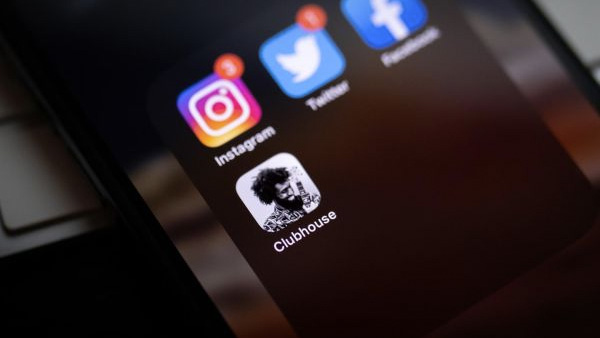
Audio-only hangout app Clubhouse exploded in popularity this year, in part by telling people they couldn't use it until a friend invited them. While downloads have dipped somewhat in recent months, plenty of people still want to get past the metaphorical bouncer and join the club.
Clubhouse is an exclusive hangout app mixed with podcasting and networking tools. It lets you start a conversation with friends or strangers with shared hobbies across the world or listen in on conversations between celebrities or topic experts. You may even be able to chat with those celebrities yourself.
There's no video component to Clubhouse, so it avoids the Zoom fatigue people are struggling with. And since Clubhouse chatroom audio isn't recorded and stored for later, discussions become limited-time events that you don't want to miss.
Now available on both iOS and Android (in limited countries), Clubhouse can be tricky to access without a guide. We'll walk you through everything you need to know about Clubhouse, including the best ways to get invited to it.
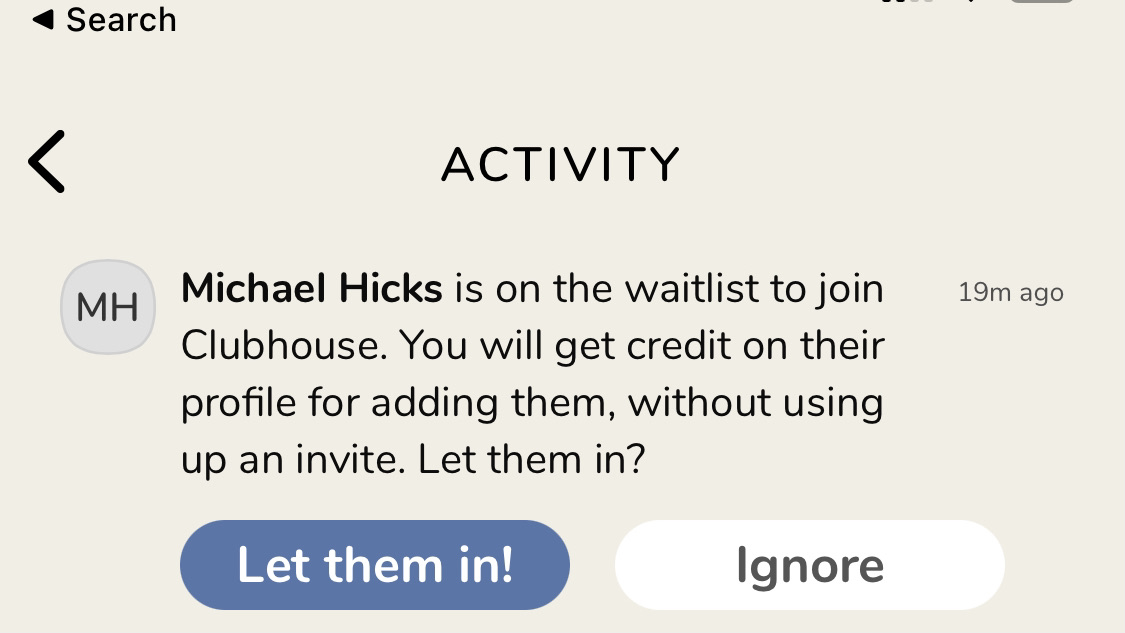
Clubhouse: How to get an invite
When you download Clubhouse for iOS – or the Clubhouse for Android beta – it will ask you whether or not you have an invite. Assuming you don't, it will prompt you to provide your real name, phone number and account username. After that, it will promise to text you if a friend invites you, but there isn't anything else you can do to get access.
At that point, the ball is entirely in your friends' court. You see, when you join Clubhouse officially, you have the option to let the app see your phone contacts. It uses them to see if anyone you know is already on the app so you can follow them. But it will also notify you if a contact's phone number is on the waitlist for Clubhouse, at which point you can tell the app to 'Let them in!'.
So the easiest way to get invited is to create a preliminary account and hope someone (A) has your number in their address book and (B) thinks you're hip enough to invite to an 'exclusive' club. In my case, my hip partner dragged my nerdy self along to the cool kids' table with her.
Get daily insight, inspiration and deals in your inbox
Sign up for breaking news, reviews, opinion, top tech deals, and more.
Just be very careful: cybercriminals are using fake Clubhouse invites to disseminate malware. A real invite should appear as a text message that reads, '[Name] moved you to the front of the waitlist and your Clubhouse account is ready! Open or install Clubhouse to get started!' or something similar. It won't ask you to click on a link in the message.
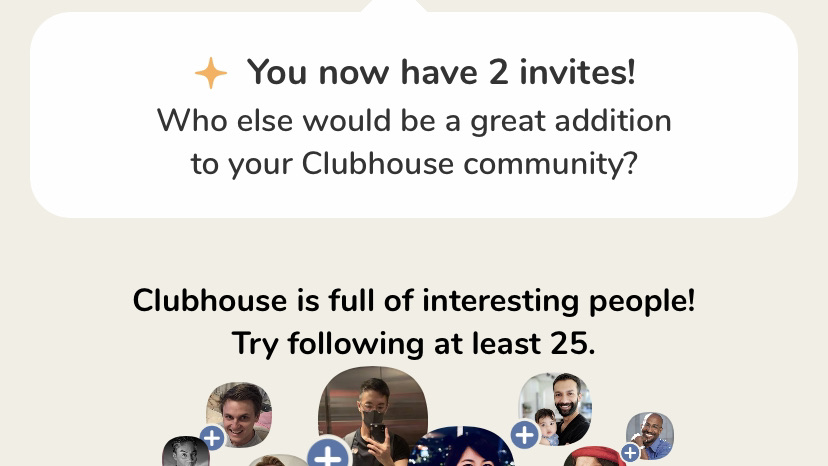
You won't be able to see who among your contacts has Clubhouse until you're officially invited. So if the passive method fails, your next best option is to hop on Slack, Discord, Facebook, or wherever you're most active and ask your friends or coworkers if any of them have an invite to spare.
You get two invites by default when you join Clubhouse, after which you can unlock more by hosting or attending events. If you do know someone who's active on the app, they'll likely have a surplus to share with you.
If that doesn't work, you probably should just be patient and wait for the metaphorical bouncer to step aside. Clubhouse announced earlier this year that it plans to 'open it up to everyone soon,' so eventually you won't need an invite at all.
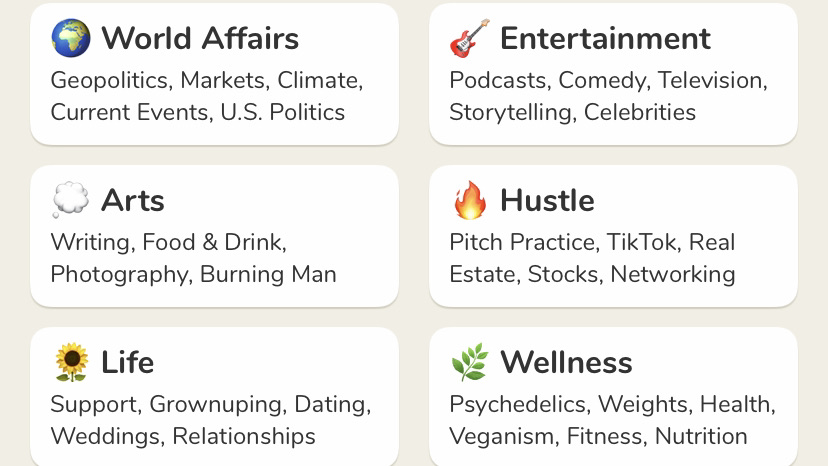
Clubhouse: How it works
Once you've gotten that coveted invite into Clubhouse, you'll need to use the app's tools to find discussions or clubs that excite you, or start your own. Note: many of these tools are iOS-only for now, but will come to Android once the beta ends.
Start by either importing your information from Twitter or inserting it manually. Clubhouse insists that everyone use their real name and profile pic, so there's no anonymity.
Your next step is to start following people or clubs that appeal to you. The app will prompt you to follow friends from your contact list or some more famous people in-app.
You can also indicate your interests in specific categories or topics, and then get suggestions like 'people interested in Entertainment follow' various actors or comedians. Or you can join clubs of like-minded folks interested in specific topics.
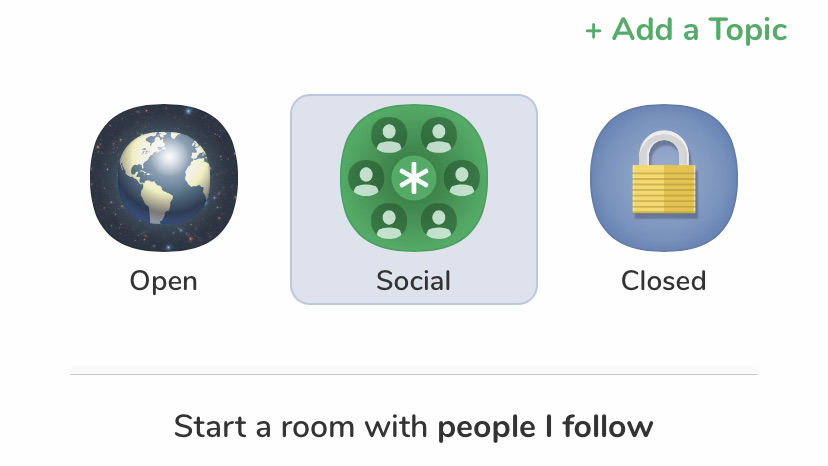
Once you've chosen different people to follow, you'll start seeing a feed of current or upcoming events and can hop into any that you see. Or you can create your own. They can either be Open to all, Social events that only invite people you follow, or Closed events with a specific invite list that you create.
Once you create an event, you are the moderator, while everyone else who enters the room is a listener. The moderator can pull listeners from the audience and make them speakers or designate certain people as speakers for an event.
In most cases, you will probably be the listener during random Clubhouse events. That means you'll just sit back and enjoy the discussion. But you'll have the option to raise a hand and see if the moderator will let you become a speaker, even if it's temporary.

Moderation is something that Clubhouse and its small team of developers have struggled with. It initially lacked any concrete moderation guidelines before reports of rampant 'misogyny, anti-Semitism and Covid-19 misinformation' in various chat rooms led to the developers creating an incident reporting system.
Clubhouse deletes recordings of its events as soon as they end, but if you report users behaving badly during an event, the recording will be sent to the app team for review. But if the event moderator doesn't see something as a problem, there's nothing you as a listener can do to stop them. All you can do is leave.
Your experience with Clubhouse will really depend on the company you keep, just as it would in real life. That's why you may want to stick to chatting with people you know or to public figures you trust not to abuse the freedom Clubhouse offers.
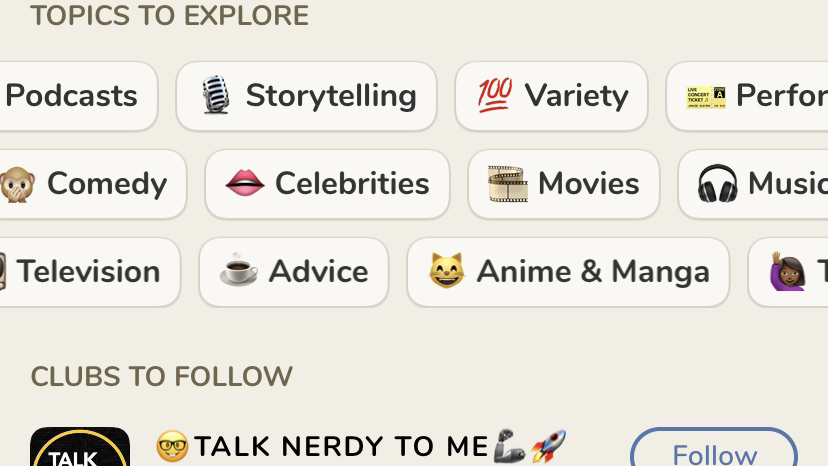
Who you choose to follow will vary based on what you're trying to get out of Clubhouse. You can join clubs centered around specific fandoms, religious faiths, ethnic groups, or other identities; or, you can try to dive into specific industries like tech or entertainment and try to make connections with CEOs or your professional peers.
The focus on like-minded communities makes Clubhouse an interesting alternative to Discord, which is most popular with gaming communities. Discord has much more robust tools like video calls and text chat but otherwise tends to be fairly insular and popular with friend groups or specific fandoms.
Michael Hicks began his freelance writing career with TechRadar in 2016, covering emerging tech like VR and self-driving cars. Nowadays, he works as a staff editor for Android Central, but still writes occasional TR reviews, how-tos and explainers on phones, tablets, smart home devices, and other tech.
